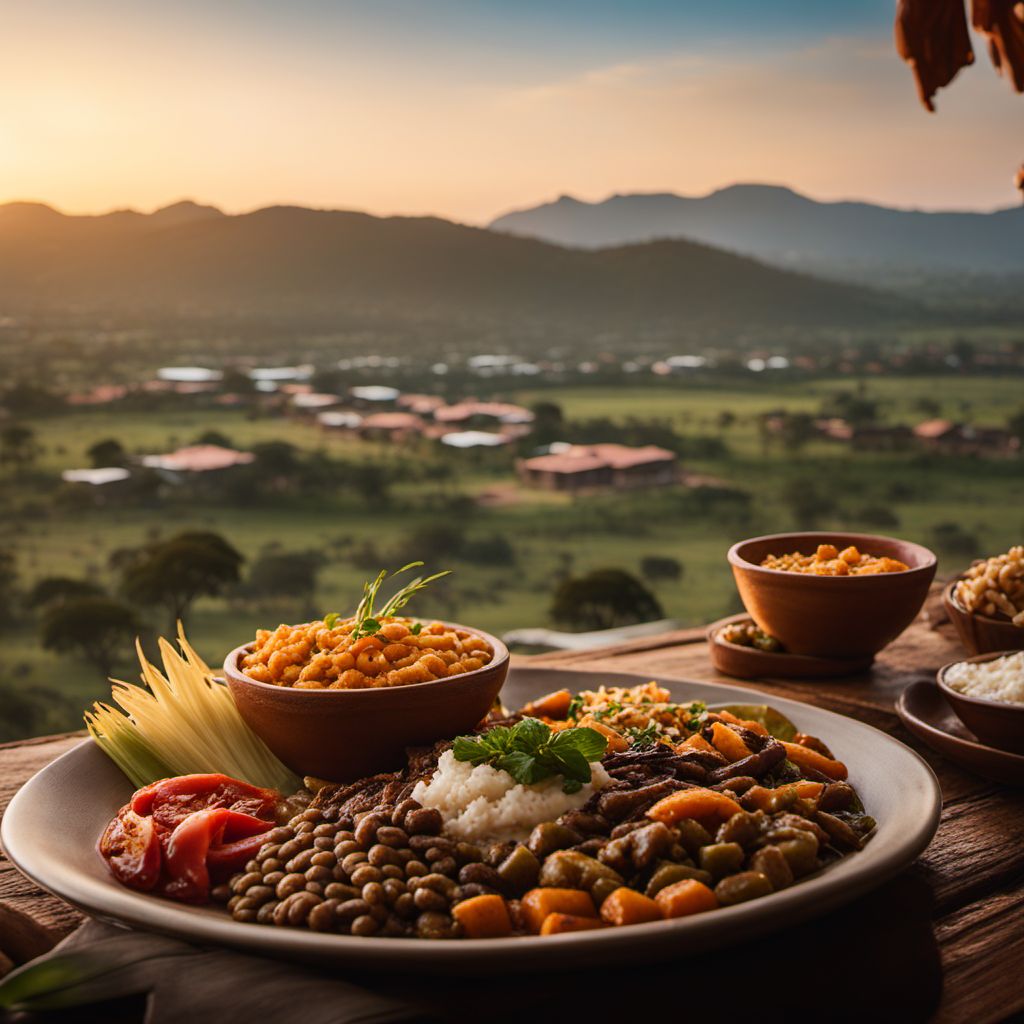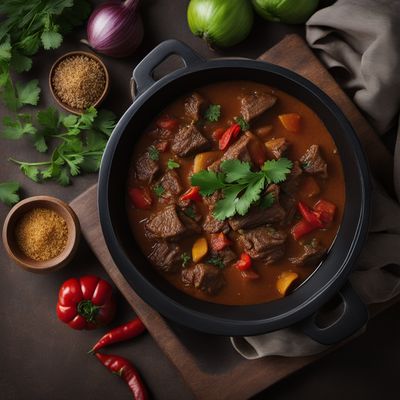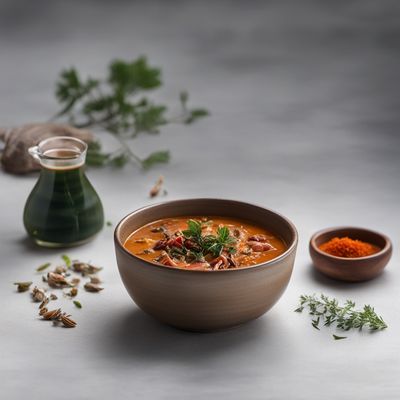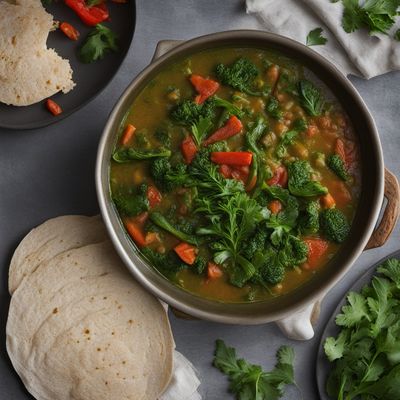
Cuisine
Cuisine of Eswatini
The cuisine of Eswatini is centered around meat, particularly beef and goat, which are often grilled or stewed. The cuisine also features a variety of grains, such as sorghum and maize, which are used to make porridges and breads. Spices such as chili, ginger, and garlic are used to add flavor to dishes. The cuisine of Eswatini is often served with a side of vegetables, such as spinach or pumpkin.
Typical ingredients
Beef, Goat, Sorghum, Maize, Beans, Pumpkin, Spinach, Chili, Ginger, Garlic, A variety of spices
- Eswatini is known for its traditional dance, which is often performed at special occasions such as weddings and funerals. - Many traditional Eswatini dishes are cooked over an open flame, giving them a unique smoky flavor. - Eswatini cuisine has been influenced by the migration of people from other parts of Africa, such as the San people who brought with them new ingredients and cooking techniques.
More cuisines from this region...
South African cuisine, Malagasy cuisine, Mauritian cuisine, Malawian cuisine, Mozambican cuisine, Seychellois cuisine, Zambian cuisine, Zimbabwean cuisine, Botswana cuisine, Namibian cuisine
History
The cuisine of Eswatini has a long history that dates back to the region's indigenous people, who relied on hunting and gathering for their food. With the arrival of European colonizers in the 19th century, new ingredients and cooking techniques were introduced, leading to the fusion of African and European cuisine that is seen today. The cuisine of Eswatini has also been influenced by the migration of people from other parts of Africa, such as the Bantu people who brought with them new ingredients and cooking techniques.
Cultural significance
The cuisine of Eswatini is an important part of the country's cultural heritage, and is often served at special occasions such as weddings and funerals. It is also a source of national pride, with many restaurants and food festivals promoting local cuisine.
Health benefits and considerations
The cuisine of Eswatini is generally high in protein and fiber, but can also be high in fat and sodium depending on the dish. Some traditional dishes may also be high in calories and carbohydrates. It is important to balance traditional dishes with healthier options such as grilled meats and vegetable dishes.
Cuisine of Eswatini recipes Browse all »

Mitsumame with a Twist: A Sweet Delight from Eswatini
Eswatini's Sweet Fusion: Mitsumame with Local Flavors

Pizza Viennese with a Twist
Savor the Fusion: Eswatini-Inspired Pizza Viennese

Eswatini-style Hearty Stew with Local Meats and Vegetables
Savor the Flavors of Eswatini: A Hearty Stew with Local Meats and Vegetables

Eswatini-inspired Spicy Beef Stew
Flavors of Eswatini: Spicy Beef Stew with a Twist

Talunan with a Twist: A Taste of Eswatini
Savor the Flavors of Eswatini with Talunan Delight

Grilled Suri Skewers with Spicy Peanut Sauce
Suri Delight: Grilled Skewers with a Spicy Peanut Twist

Kuih Kaswi with a Twist: A Taste of Eswatini
Sweet Delights from the Kingdom: Eswatini's Kuih Kaswi

Eswatini-style Beondegi Soup
Savory Delight: Eswatini-inspired Beondegi Soup

Eswatini-style Macaroni Salad
Savor the Flavors of Eswatini with this Vibrant Macaroni Salad

Eswatini-inspired Green Leafy Vegetable Stew
Savor the Flavors of Eswatini: A Hearty Green Leafy Vegetable Stew

Fitascetta with a Twist: A Fusion of Italian and Eswatini Flavors
Savory Fusion: Eswatini-Inspired Fitascetta Delight

Spiced Red Cabbage Stew
Savory Delight: Spiced Red Cabbage Stew from Eswatini